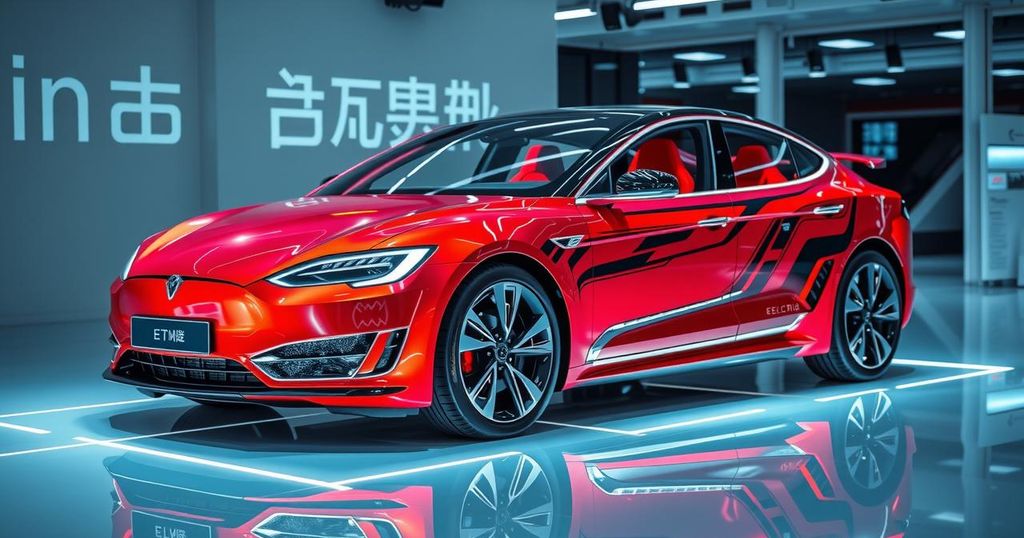Collaboration Over Competition: The Future of Electric Vehicles in a Global Context
The rise of Chinese electric vehicles highlights the need for global cooperation in addressing climate change. China’s innovation, manufacturing capabilities, and competitive market dynamics drive this sector’s growth. However, Western trade restrictions pose challenges that could hinder global transitions to greener technologies. Encouraging collaboration between nations can lead to significant advancements in sustainable transportation while minimizing costs for consumers.
The global rise of Chinese electric vehicles (EVs) presents both accolades and critiques, yet it embodies an opportunity for international collaboration. China’s commitment to innovation, supported by a vigorous manufacturing base and a competitive domestic market, has propelled it to the forefront of the EV sector. While some Western narratives portray these successes as a result of unfair practices, the true essence lies in a concerted global effort towards sustainable development.
China’s focus on research and innovation since the early 1990s, coupled with collaborations across universities and industries, has stimulated rapid advancements in EV technology. This model, while prominently in use in China, is mirrored in Western nations like the United States and Germany, showcasing that successful innovation often thrives on global cooperation. China’s manufacturing ecosystem further enhances its capacity for producing high-quality, cost-effective vehicles through integrated supply chains and strict adherence to international quality norms.
Moreover, the fiercely competitive nature of the Chinese market compels manufacturers to constantly enhance their offerings, thereby ensuring their readiness to compete internationally. Despite this success, Western economies have resorted to imposing trade restrictions on China’s EV sector, a move that disrupts market dynamics and increases consumer costs while contradicting climate action commitments.
In the European Union, a region historically aligned with climate action, such measures risk hindering the global shift toward sustainable transportation. Rather than fostering healthy competition, these barriers could ultimately limit consumer choices and slow environmental progress. To address these challenges, collaborative efforts between Chinese EV manufacturers and Western counterparts are essential. Joint ventures and local production plants not only alleviate domestic employment concerns in host nations but also strengthen competitive advantages. Furthermore, creating localized solutions through partnerships will be crucial for penetrating foreign markets.
China and the West must seek avenues for cooperation by reducing trade barriers and formulating international standards for EV technology, charging infrastructure, and safety protocols. By creating transparent mechanisms for technology exchange and dispute resolution, trust can be built among global players in the EV sphere. Faced with pressing climate issues and economic uncertainty, the necessity for joint cooperation cannot be overstated.
China’s leadership in EV technology offers Western manufacturers significant entry points into the green energy transition, which can be accelerated through open markets and collaborative frameworks. Together, nations can ensure meaningful advancements toward global climate goals, thus paving the way for a sustainable, innovative future that benefits all parties involved.
The article discusses the emergence of Chinese electric vehicles (EVs) in the global market, highlighting their competitive advantages and the implications of Western trade policies. It emphasizes China’s focus on innovation, robust manufacturing capabilities, and an intensely competitive domestic market as key drivers of success in the EV sector. Additionally, it critiques Western trade restrictions and outlines opportunities for international cooperation to foster a healthier global EV ecosystem.
In conclusion, the success of Chinese electric vehicles exemplifies the potential for global collaboration in the face of climate challenges. By embracing cooperation over protectionism, countries can leverage shared interests in innovation and sustainable practices. The ongoing transformation of the automotive industry towards EVs is not just a regional endeavor but a global obligation, where all actors must work together to face the pressing demands of climate change.
Original Source: www.chinadaily.com.cn




Post Comment